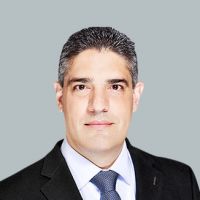Centers for plastic and/or esthetic surgery offer services in reconstructive surgery, e.g. after tumor diseases or accidents, as well as "optimization services" for the esthetic correction of patient wishes that are not medically indicated. These include, for example, eyelid lifting, wrinkle reduction or classic breast augmentation. The aim of esthetic surgery is to combine function and esthetics.
Recommended specialists
Article overview
Esthetic surgery - Further information
Beauty is relative, it is said. Deviations from the norm, whether natural or the result of an accident or a serious illness, catch the eye of our fellow human beings more quickly and sometimes restrict the social life of those affected. In order to be able to help these people - with a medical indication or just for the sake of optimization - there are specialists for plastic and esthetic surgery.
For the following illnesses or esthetic problems you should therefore consult a specialist for plastic and esthetic surgery:
Fields of activity of plastic surgery
- Covering defects with the aid of flap plastic
- Correction of scar tissue
- Hand surgery
- Therapy of wound healing defects
- Reconstruction of facial parts after accident, burn or cancer
- Reconstruction of the female breast after mastectomy (removal of breast tissue)
- Operation of gynecomastia (breast formation in men)
Treatment spectrum of esthetic surgery
- Breast enlargement / breast reduction / breast lift
- Body shaping, e.g. tummy tuck or buttock lift
- Genital surgery
- Esthetic surgery of the face (neck lift, upper lid lift, lip shaping, ...)
- Wrinkle treatment with Botox, hyaluronic acid, laser or own fat injection
- Own hair transplants
Who pays for treatments in esthetic surgery?
Treatments that serve to restore function or esthetics after an accident or serious illness are usually covered by health insurance. The same also applies to birth defects, such as cleft palates, which sometimes severely affect the patient's appearance.
However, the situation is different for patients who only want to optimize their appearance. These are not covered by health insurance. This applies above all to wrinkle treatment in the course of anti-aging, breast enlargement, penis enlargement and the adaptation of the nose shape.
What distinguishes a specialist in esthetic surgery
The German Society for esthetic Plastic Surgery lists the following three points which should be mandatory basic requirements for specialists in the field of esthetic surgery in order to ensure high quality in patient care:
- Specialists in esthetic surgery bear the title of specialists in plastic or plastic and esthetic surgery. This requires six years of specialist training.
- The specialists should have been working independently in their own practice or clinic in the field of esthetic surgery for at least two years..Every specialist in esthetic surgery regularly takes part in professional training courses, attends relevant congresses and workshops in order to keep their own knowledge up to date.
As a patient, it is best to find out more about the clinic and the medical staff in esthetic surgery and whether they meet the criteria mentiond above. In addition to further training in the specialist field, specialists in esthetic surgery should also have sufficient practical experience in the specialist field. Therefore, ask specifically about the amount of services provided per year. A specialist clinic for plastic and esthetic surgery should be able to fill most of its time with surgeries in this field and have high success rates.
Medical spectrum
Therapies
- (Facial) thread lift
- Abdominal wall tightening
- Autologous fat transplantation
- Body lift
- Botox therapy
- Breast enlargement
- Breast lift
- Breast reduction
- Brow / Forehead lift
- Buttock enhancement
- Buttock lift
- Cheek bone correction
- Cheek lift
- Chin correction
- Correction of breast asymmetry
- Cryolipolysis
- Dermabrasion
- Ear correction
- Esthetic correction in the female genital region
- Eyebrow lift
- Eyelid correction
- Eyelid lift
- Facelift
- Facial profile correction
- Facial rejuvenation
- Facial surgery
- Fat reduction
- Forehead-brow lift
- G-spot enlargement
- Hair removal
- Hair transplantation
- Hyaluronic acid
- Hymen reconstruction
- Injection wrinkle treatment
- Intimate surgery
- Labia reconstruction
- Labial enhancement
- Labial reduction
- Laser wrinkle treatment
- Lip correction
- Lip enhancement
- Lipolysis
- Liposuction
- Microneedling
- Mole removal / excision
- Nose correction
- Penile (penis) enlargement
- Permanent hair removal
- Permanent makeup removal
- Reconstructive breast surgery
- Scar correction
- Skin rejuvenation
- Skin tightening
- Sweat pore
- Tattoo removal
- Thermage
- Thigh lift
- Upper arm lift
- Vaginal Tightening
- Wrinkle treatment
Diseases
References
References:
Deutsche Gesellschaft für Ästhetisch-Plastische Chirurgie











